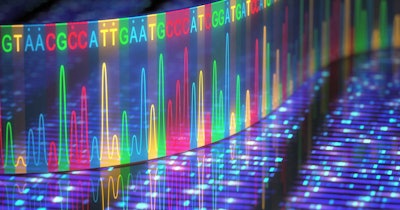
Healthcare organizations are exchanging patients’ structured genomic data in hundreds of transactions via U.S. vendor Epic Systems’ electronic health records (EHR) systems after a “milestone” was achieved by the company, Epic has said.
Peter DeVault, vice president of genomics and interoperability at Epic, said that the landmark moment occurred in April 2023 between two unnamed health organizations when they exchanged clinical information for a patient they cared for in common, using Epic’s Care Everywhere health information exchange functionality.
“What made the exchange different was that in addition to the patient's problem list, notes, medications, and radiological tests, the dataset also contained the patient's structured genetic information,” DeVault told LabPulse.com.
The software company has built a dedicated, cloud-based sequence server to store large genomics files.
DeVault said it had taken “several years of effort to build and refine the appropriate data model and capabilities within Epic’s software to make that information useable and useful.”
He told LabPulse.com, “This information typically comes from laboratories, and when patients receive care at facilities other than where their genetic testing results were originally reported, that genetic information needs to move with the rest of their charts. That is now possible.”
He described the original exchange as a “celebrated milestone,” adding “Since April, several hundred additional such exchanges have occurred between treating healthcare organizations.”
As genomic medicine has advanced, the EHR has been adopted into routine practice; it is seen as a powerful tool for the delivery of precision medicine.
One of the key potential benefits of integrating genetic data into the EHR is the ability to link to clinical decision support. This can help clinicians choose appropriate medications and other treatments for their patients, or to diagnose patients with genetic diseases.
Epic says that in addition to enabling point-of-care decision support, the same data can also be leveraged like other health information for analytics, population health management, and research (as allowed by the laws, regulations, and policies that apply to such uses).
More than 305 million patients have a current electronic record in Epic, which has faced criticism in the past for a less than open approach to interoperability of electronic medical records with rival systems.
DeVault said that every organization in the world that uses an Epic EHR was capable of receiving, storing, and using structured genetic information, adding, “Epic will continue the work of connecting additional genetic testing laboratories to healthcare organizations around the world, developing tools for normalizing and comparing genetic findings with knowledgebases, and rolling out our Genomics Sequence Server to all our customers so they can efficiently and securely store whole genomes and other large result sets.”


















